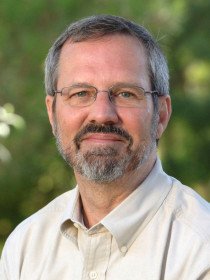
Robert J. Brulle
Professor Emeritus of Sociology and Environmental Science, Brown University
Chapter Member: New Jersey-Philadelphia SSN
Areas of Expertise:
Connect with Robert
About Robert
Brulle’s research focuses on the interactions between civil society, social movements and the natural environment. His signature work, Agency, Democracy, and Nature (2000), studies the social causes of environmental degradation and the political actions necessary to deal with it. He also investigates the political and cultural dynamics of climate change.
Contributions
The Hidden Campaign to Spread Doubt about Climate Science
Basic Facts Brief,
Partisan Battles and Shifting Public Opinion on Climate Change
Key Findings Brief,
In the News
Opinion: "Big Oil’s Trade Group Allies Outspent Clean Energy Groups by a Whopping 27x, With Billions in Ads and Lobbying To Keep Fossil Fuels Flowing," Robert J. Brulle (with ), The Conversation, February 13, 2023.
Quoted by Amanda Terkel in "GOP Climate Change Denial Set the Stage for Trump’s Coronavirus Conspiracies," The Huffpost, July 27, 2020.
Research discussed by , in "Why Are ‘The New York Times’ and ‘The Washington Post’ Producing Ads for Big Oil?," The Nation, April 22, 2019.
Research discussed by , in "Major Polluters Spend 10 Times as Much on Climate Lobbying as Green Groups, Study Finds," The Independent, July 19, 2018.
Opinion: "30 Years Ago Global Warming Became Front-Page News - and Both Republicans and Democrats Took It Seriously," Robert J. Brulle, The Conversation, June 19, 2018.
Quoted by Zahra Hirji in "These Conservative Megadonors Funded Climate Denial in 2016, Tax Filings Show," Buzzfeed News, January 25, 2018.
Quoted by Robert O'Harrow Jr. in "A Two-Decade Crusade by Conservative Charities Fueled Trump’s Exit from Paris Climate Accord," The Washington Post, September 5, 2017.
Quoted by Sean McElwee in "Moneyed Interests are Blocking U.S. Action on Climate Change," Al Jazeera America, February 8, 2016.
Guest on WHYY Radio Times with Marty Moss-Coane, December 14, 2015.
Quoted by Alex McKechnie in "Debating the Pope: Social Scientists Engage Pope's Call for Climate Change Dialogue in Top Journal," Drexel Now, September 24, 2015.
Interviewed in "Climate Change's Overlooked Sociological Side," Inside Climate News, August 25, 2015.
Research discussed by "New Book Argues That Social Sciences are Critical to Climate Conversation: Climate Change is a 'People Problem'," Drexel NOW, August 20, 2015.
Research discussed by , in "The Climate Denial Beast (Speech to the U.S. Senate)," Sen. Sheldon Whitehouse Speech on the Senate Floor, February 4, 2014.
Research discussed by , in "The Dark Money in Climate Change," The Washington Post, December 27, 2013.
Guest on CBS's Frontline, October 23, 2012.
Research discussed by , in "Americans Listening to Politicians, Not Climate Scientists," Wired Science, February 27, 2012.
Quoted by in "The Devil's Advocate: Is Fred Krupp an Environmental Savior or a Corporate Stooge?," The New Republic, September 24, 2007.
Publications
"Institutionalizing Delay: Foundation Funding and the Creation of U.S. Climate Change Counter-Movement Organizations" Climatic Change (December 2013).
Conducts an analysis of the financial resource mobilization of the organizations that make up the climate change counter-movement in the United States, and finds that the overwhelming majority of the philanthropic support comes from conservative foundations. Additionally, there is evidence of a trend toward concealing the sources of funding through the use of donor directed philanthropies.
"Human Behavior and Sustainability" (with ). Frontiers in Ecology and the Environment 10, no. 3 (2012): 153-160.
Develops an integrated perspective on the different levels and types of actions necessary to enable the creation of a sustainable society.
"Shifting Public Opinion on Climate Change; An Empirical Assessment of Factors Influencing Concern over Climate Change in the U.S." (with ). Climatic Change (January 2012).
Develops and tests a model of the factors that influence public opinion on climate change in the U.S. over time.
"From Environmental Campaigns to Advancing the Public Dialogue: Environmental Communication for Civic Engagement" Environmental Communication: A Journal of Nature and Culture 4, no. 1 (2010): 82-98.
Critiques existing environmental communications strategies, and lays out an alternative approach that integrates communications efforts into a larger effort to foster social change.
"Environmental Justice: Human Health and Environmental Inequalities" (with ). Annual Review of Public Health 27 (2006): 103-124.
Provides an overview of the social factors that drive environmental inequality, and how the climate justice movement has developed to address this issue.
"Power, Justice and the Environment: A Critical Appraisal of the Environmental Justice Movement " (with ) (MIT Press, 2005).
This collection of essays develops a critical environmental justice perspective that seeks to foster reflexivity within the environmental justice movement.
"Agency, Democracy, and Nature: U.S. Environmental Movements from a Critical Theory Perspective " (MIT Press, 2000).
Analyzes the social causes of environmental degradation and the political actions necessary to deal with it. Develops both a pragmatic and a moral argument for broad-based democratization of society as a prerequisite to achieving ecological sustainability.